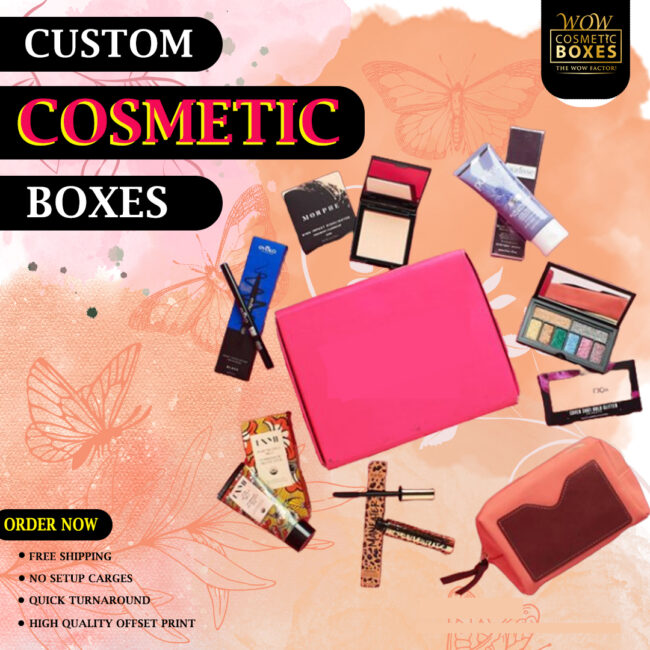
You’ve got several top biodegradable packaging options for cosmetics that not only protect your products but also align with eco-conscious values. Consider plant-based plastics made from renewable materials like cornstarch and sugarcane; they break down efficiently in compost. Mushroom and seaweed packaging are innovative alternatives, decomposing quickly while minimizing waste. Recycled paper and cardboard options promote sustainability while offering customization. For a unique twist, edible packaging captures consumer interest and reduces waste. Exploring these choices can elevate your brand’s commitment to sustainability, making it attractive to eco-minded shoppers. There’s more to discover about these exciting options!
Main Points
- Plant-based plastics, derived from renewable resources, offer comparable protection while being biodegradable and reducing fossil fuel dependency.
- Mushroom packaging decomposes quickly and utilizes agricultural byproducts, promoting sustainability and supporting local economies.
- Seaweed packaging is eco-friendly, rapidly renewable, and often compostable or edible, aligning with circular economy principles.
- Recycled paper and cardboard packaging reduces waste and is customizable, appealing to eco-conscious consumers while being budget-friendly.
- Glass containers are fully recyclable and reusable, reducing reliance on single-use plastics and promoting an eco-friendly brand image.
Plant-Based Plastics
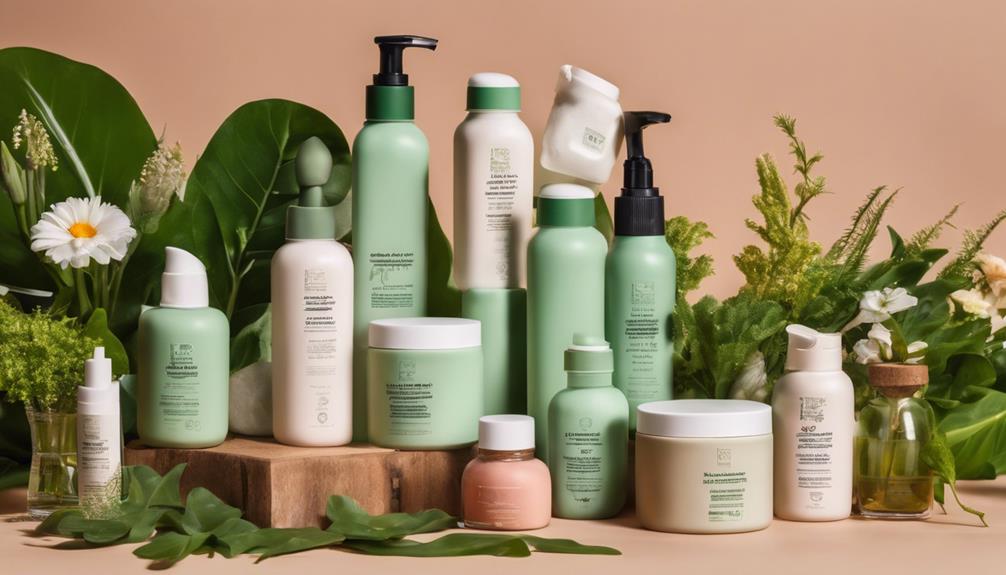
In the domain of sustainable packaging options, plant-based plastics stand out as a promising alternative to traditional petroleum-derived materials. One exciting option within this category is custom organic hemp soap boxes, which are designed for eco-friendly packaging and made from biodegradable materials.
You’ll find that these biodegradable innovations are crafted from renewable resources, such as cornstarch or sugarcane, allowing for a significant reduction in fossil fuel dependency. By choosing plant-based plastics, you support sustainable sourcing practices, which emphasize the importance of responsibly harvested materials.
These plastics can break down more efficiently in composting environments, minimizing environmental impact. Additionally, they offer comparable performance to conventional options, ensuring your cosmetic products remain well-protected.
As consumers increasingly demand eco-friendly solutions, adopting plant-based plastics can enhance your brand’s reputation while contributing to a healthier planet. Embracing this shift is a step toward a more sustainable future.
Mushroom Packaging
Mushroom packaging, another innovative solution in the domain of sustainable materials, is gaining attention as a viable alternative to conventional options. This eco-friendly packaging utilizes mycelium growth, the root structure of mushrooms, to create a robust and biodegradable material.
By harnessing mycelium, manufacturers can develop packaging that not only protects products but also decomposes in a matter of weeks, unlike traditional plastics. Sustainable sourcing is key here; using agricultural byproducts as feedstock guarantees minimal waste and supports local economies.
As you consider packaging options for your cosmetics, think about the environmental impact of your choices. Mushroom packaging offers an effective, renewable solution that aligns with eco-conscious consumer trends, helping you stand out in a competitive market.
Recycled Paper and Cardboard
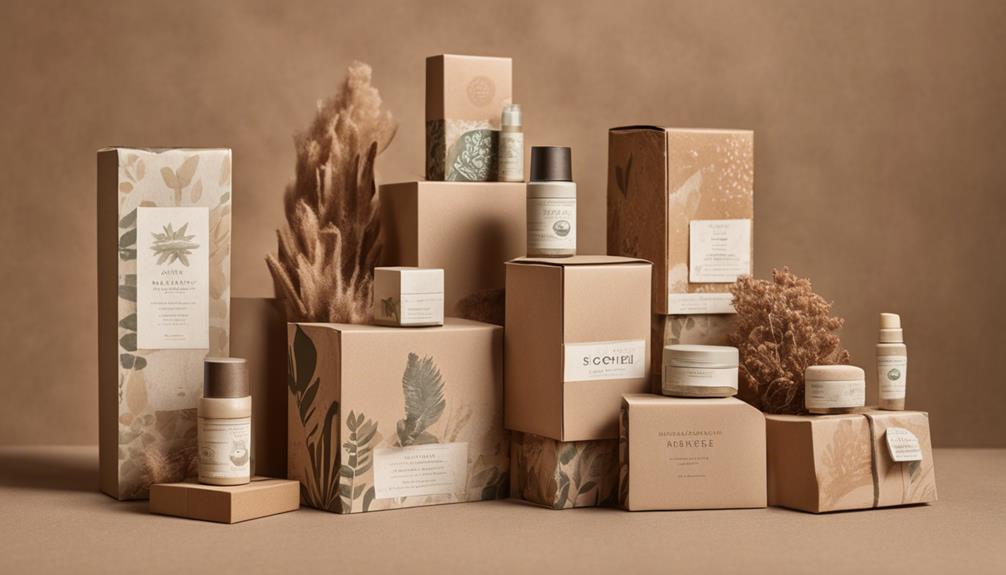
Recycled paper and cardboard represent a practical choice for eco-friendly packaging in the cosmetics industry. By utilizing these materials, brands can considerably reduce waste and promote sustainability practices.
Custom Kraft Pillow Soap Boxes made from recycled materials demonstrate that sustainability can also enhance aesthetic appeal. You’ll find that recycled paper isn’t just versatile, but also customizable, allowing brands to maintain aesthetic appeal while being environmentally responsible.
As consumer awareness grows regarding the impact of packaging on the planet, companies that adopt recycled materials can elevate their brand image and attract eco-conscious customers.
Additionally, these materials are often less expensive than new alternatives, making them a win-win for both the environment and your budget. Choosing recycled paper and cardboard helps create a circular economy where resources are reused, further solidifying your commitment to sustainability.
Biodegradable Films
While traditional plastics pose considerable environmental challenges, biodegradable films offer a promising alternative for cosmetic packaging. These films are crafted from materials like plant starches and other biopolymers, ensuring they break down more easily in natural environments.
Furthermore, many brands are now opting for custom paper bags that provide an eco-friendly and stylish option for packaging. You’ll appreciate the biodegradable durability they provide, allowing effective protection for your products without compromising sustainability.
When considering packaging options, focus on brands that prioritize sustainable sourcing, as this not only reduces waste but also supports eco-friendly farming practices. Biodegradable films can effectively maintain the integrity of your cosmetics while greatly lowering your environmental impact.
As consumers become increasingly eco-conscious, choosing biodegradable films can enhance your brand’s appeal, aligning your products with a more sustainable future.
Seaweed Packaging
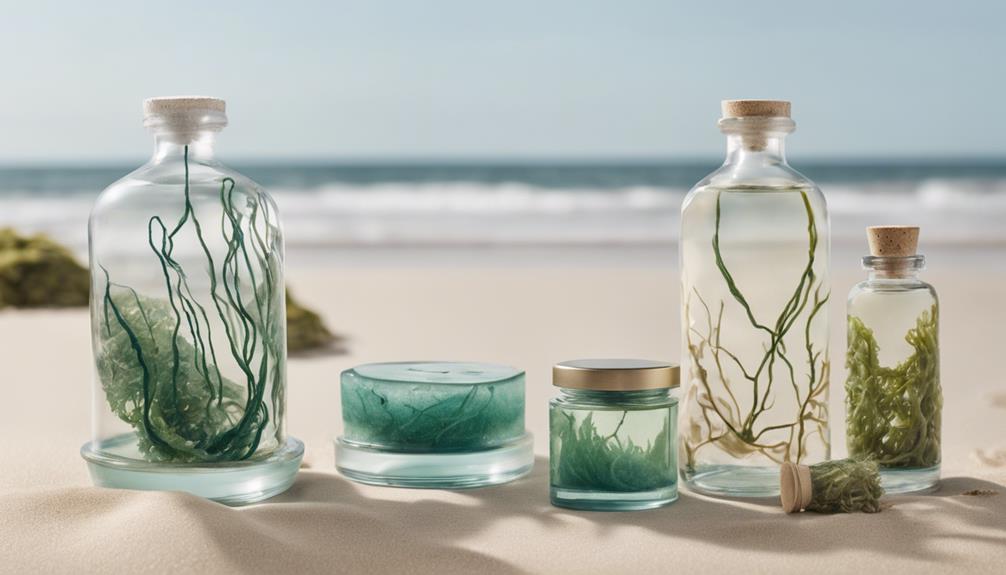
Exploring the innovative domain of seaweed packaging reveals a sustainable solution that’s gaining traction in the cosmetics industry. This biodegradable option harnesses the natural properties of seaweed, offering significant sustainability benefits.
Unlike traditional plastics, seaweed packaging decomposes back into the environment, reducing waste and lowering your carbon footprint. The environmental impact of seaweed is minimal, as it grows rapidly without the need for fertilizers or freshwater.
By choosing products wrapped in seaweed packaging, you’re supporting marine ecosystems and promoting a circular economy. Plus, this type of packaging is often edible or compostable, adding another layer of eco-friendliness.
As consumers increasingly prioritize sustainability, embracing seaweed packaging can enhance your brand’s commitment to environmental responsibility while attracting eco-conscious clientele.
Glass Containers
Glass containers have emerged as a prominent choice in the cosmetics industry, combining elegance with sustainability. Their eco-friendly design not only enhances the aesthetic appeal of your products but also aligns with sustainability practices that consumers increasingly demand.
Unlike plastic, glass is fully recyclable and can be reused multiple times without degrading its quality, making it a sustainable option for packaging. This choice is particularly beneficial for brands looking to elevate their image and demonstrate commitment to eco-friendly practices, as seen in the custom essential oil packaging trend.
By choosing glass, you’re reducing the reliance on single-use plastics that contribute to environmental pollution. In addition, glass doesn’t leach harmful chemicals into your cosmetics, ensuring product integrity.
As brands adopt glass packaging, they signal a commitment to eco-consciousness, appealing to consumers who prioritize green choices in their beauty routines. Embracing glass containers reflects both style and responsibility.
Cornstarch Packaging
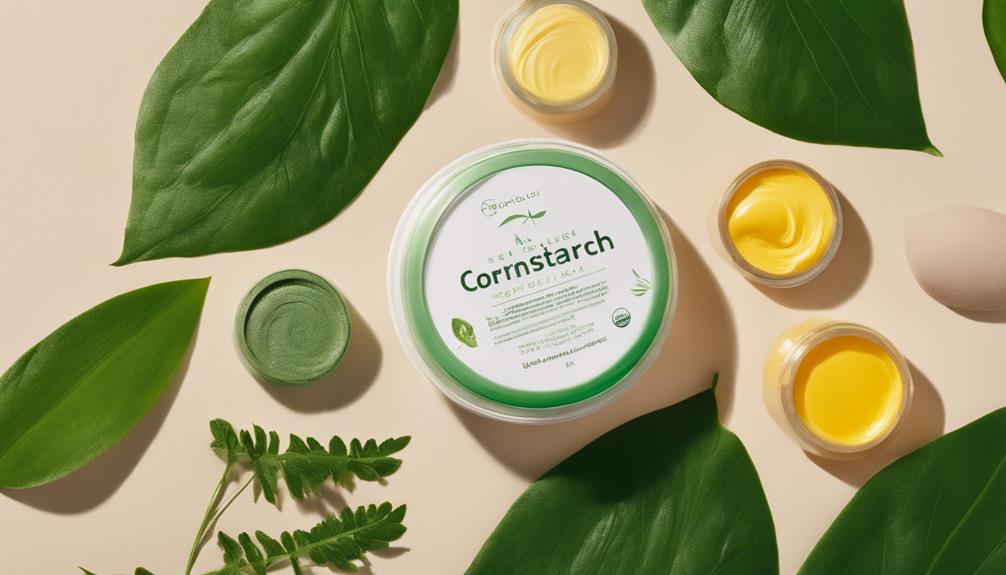
Cornstarch packaging is rapidly gaining traction as an innovative and sustainable alternative in the cosmetics industry. Its biodegradable nature offers significant cornstarch benefits, as it breaks down naturally within a few months, reducing landfill waste.
You’ll appreciate how this packaging option aligns with eco-conscious consumer preferences, enhancing brand loyalty. Unlike traditional plastic, cornstarch packaging is derived from renewable resources, making it a greener choice.
While there are several cornstarch alternatives available, such as paper and bamboo, the versatility of cornstarch allows for various shapes and designs, enabling brands to stand out.
Edible Packaging
As the cosmetics industry continues to seek innovative packaging solutions, edible packaging is emerging as a fascinating option that not only reduces waste but also offers unique benefits for product presentation.
Imagine unwrapping a lip balm encased in a delicious, biodegradable film that you can actually eat. This type of packaging can incorporate flavor infusion, enhancing the sensory experience of your cosmetic products.
Moreover, edible packaging can provide nutritional benefits, introducing beneficial ingredients like vitamins or antioxidants directly into the packaging. This approach not only engages consumers but also aligns with a growing trend toward sustainability in the beauty industry.
Compostable Materials
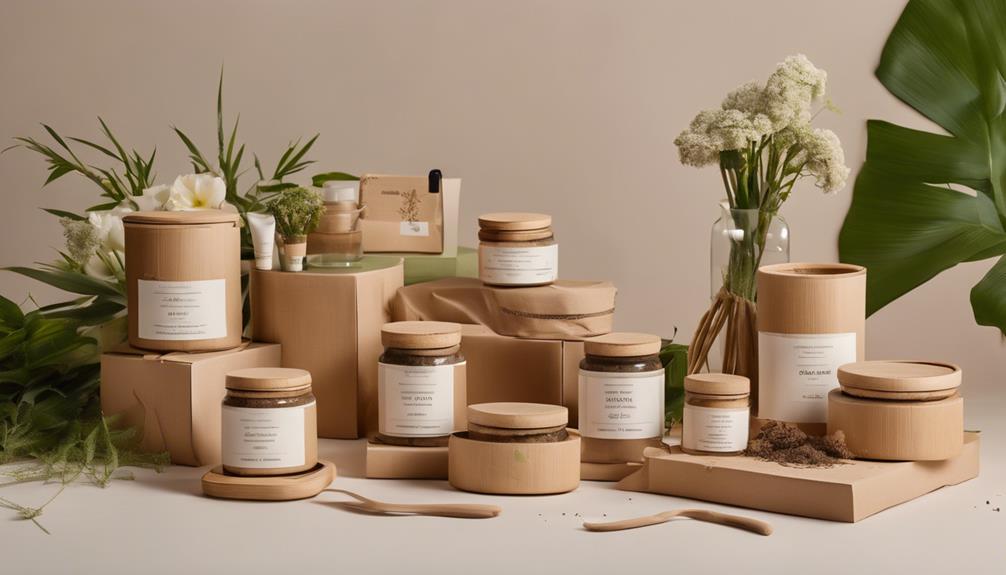
Exploring compostable materials reveals a promising avenue for sustainable packaging in the cosmetics industry. These materials, designed to break down under specific composting processes, offer an eco-friendly alternative to conventional plastics.
As brands increasingly adopt custom packaging solutions that focus on sustainability, the demand for such materials continues to rise. When choosing compostable packaging, you should look for biodegradable certifications, which guarantee that the materials meet industry standards for decomposition.
Common options include plant-based plastics and paper products treated for compostability. By opting for these materials, you not only reduce waste but also contribute to a circular economy where packaging can return to the earth as nutrient-rich compost.
Understanding the differences in composting processes—home versus industrial—can also help you make informed decisions about which compostable products best suit your brand’s sustainability goals.
Natural Fiber Solutions
An increasing number of cosmetic brands are turning to natural fiber solutions as a sustainable packaging alternative. Hemp packaging is gaining traction due to its durability and quick renewability. This eco-friendly option not only reduces plastic waste but also offers a unique texture and aesthetic appeal, making it popular among consumers who prioritize sustainability.
Similarly, bamboo containers are becoming a favorite for their lightweight nature and biodegradability. They require less water to grow than traditional materials, making them an environmentally friendly choice.

